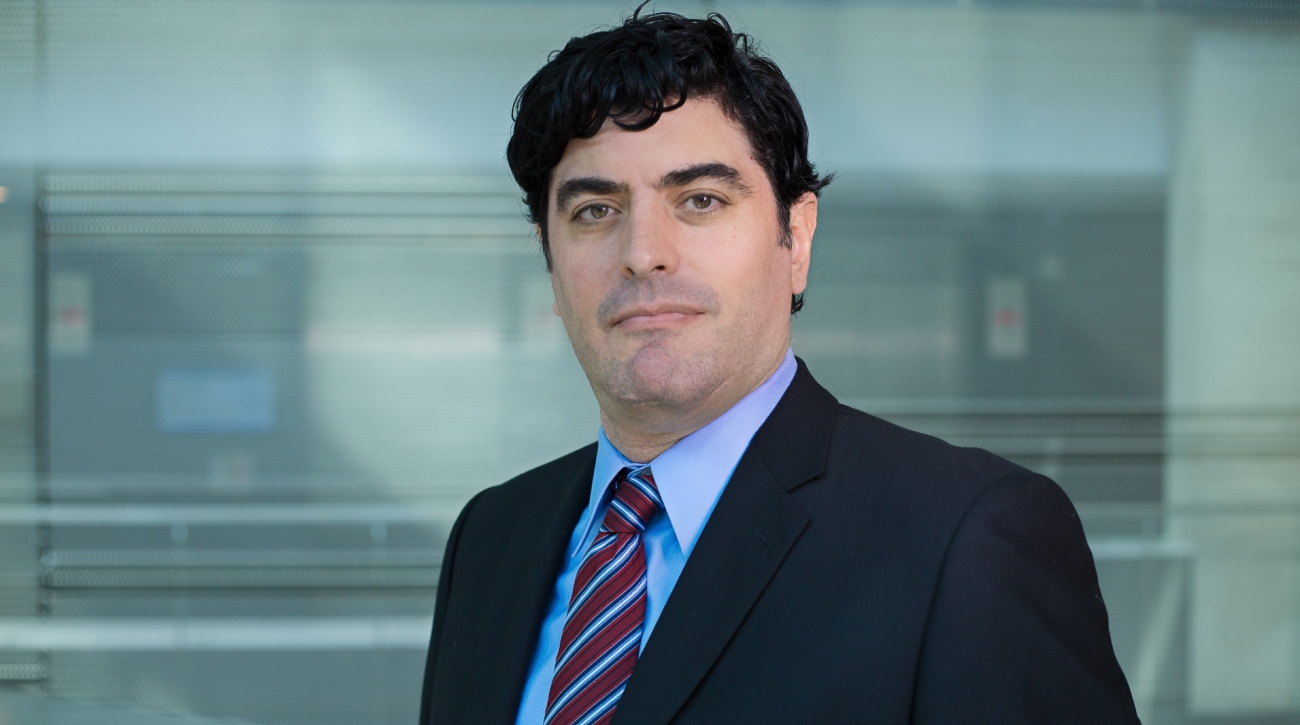As a molecular toxicologist, Associate Professor Matias Attene-Ramos, PhD, has been designing and evaluating the kinds of cellular tests that support the updated Toxic Substances Control Act signed into law in June by President Barack Obama. Both in the classroom and in the laboratory, Ramos will be enhancing the capacity of George Washington University’s Milken Institute School of Public Health to expose students to the non-animal based tests that the U.S. National Academies of Sciences have called for to modernize how scientists evaluate chemicals for hazard and harm. These tests hold great promise for dramatically reducing the amount of time required for scientists to evaluate tens of thousands of untested chemicals currently used in the U.S.
Attene-Ramos’ laboratory at GW's newly opened Science and Engineering Hall will implement different biochemical and molecular biology tests to identify what the National Academies refer to as “pathways of toxicity” and reveal the underlying mechanisms. These tests allow Attene-Ramos to evaluate how chemical compounds may be damaging cells by harming important cellular components such as the DNA and the mitochondria that serve as cells’ power plants. His research also looks at the issue of toxicity from the other side of the equation by testing environmental samples, such as drinking or surface water, to look at endpoints that allow toxicity to be predicted.
As a researcher, “my long-term objective is to identify and define how chemicals can perturb the functioning of cells to bring to light molecular mechanisms of toxicity. This information will help me to both develop more efficient testing strategies and to generate models capable of predicting when chemicals may cause toxicity that harms people,” Attene-Ramos says. “I also want to help implement effective strategies to mitigate the negative effects of chemical exposure.”
Attene-Ramos’ 13 years of experience in toxicology, biology, and chemistry include serving as an assistant professor in environmental and molecular toxicology for the Department of Biological Sciences at the University of Quebec at Montreal’s College of Science. As a requirement for his professorial position at the University of Quebec, Attene-Ramos translated all of his teaching into French, a language in which he was not previously fluent.
A native of Argentina, Attene-Ramos studied chemistry as an undergraduate in the Universidad Nacional de la Plata. He came to the U.S. for his graduate work and received his doctorate from the University of Illinois at Urbana-Champaign in 2008. Next, Attene-Ramos worked as a postdoctoral visiting fellow in toxicology and pharmacology at the National Institutes of Health’s Chemical Genomics Center and National Center for Advancing Translational Sciences until 2013. During his time there, he had key roles in several major studies of national significance, including contributing to the utility of the agency’s robotic high-throughput (cell-based) in vitro screening program and characterizing the ability of compounds to alter mitochondrial membrane potential in human cells, changes associated with many diseases with environmental health components, including cancer, autism and diabetes.
Attene-Ramos’ 20-plus publications include seven papers on which he served as the first author that were published in high-impact peer-reviewed journals. His other important research projects include the study of heat shock proteins and the byproducts of disinfecting drinking water.
“I am looking forward to interacting with our students, the future world leaders and decision makers in public health, and contributing to their preparation and development so they can succeed in making the world a better place,” Attene-Ramos says.
In his spare time, Attene-Ramos enjoys playing and coaching basketball, rugby and soccer. He also loves dogs and is a die-hard fan of the Chicago Cubs.


